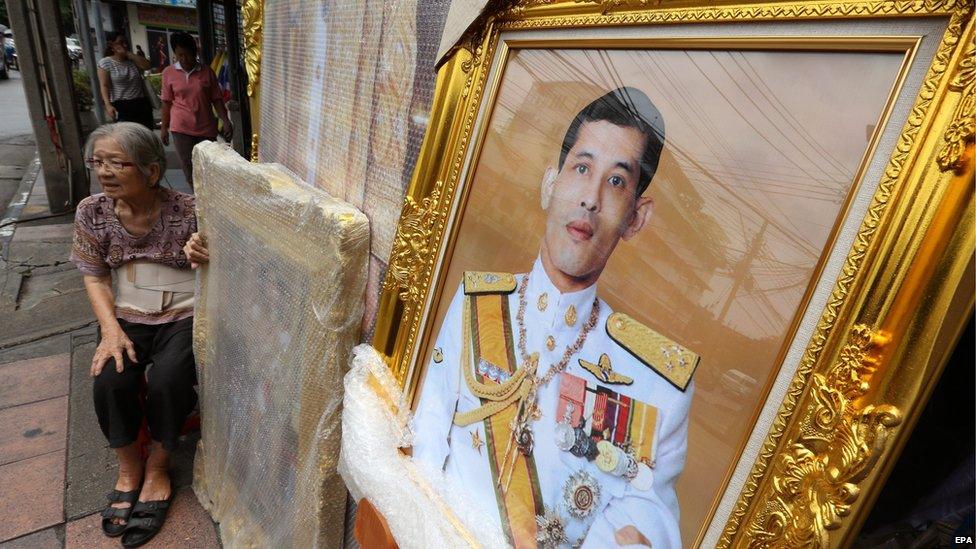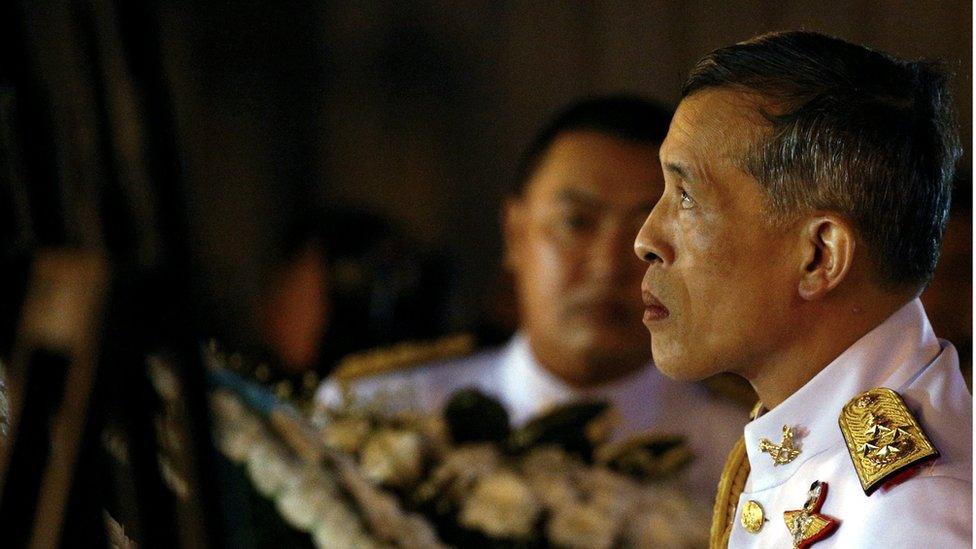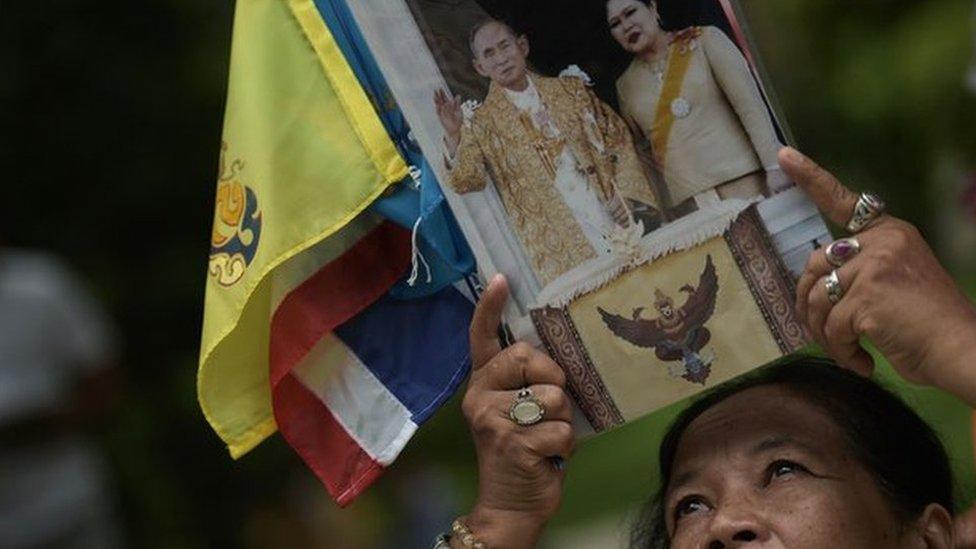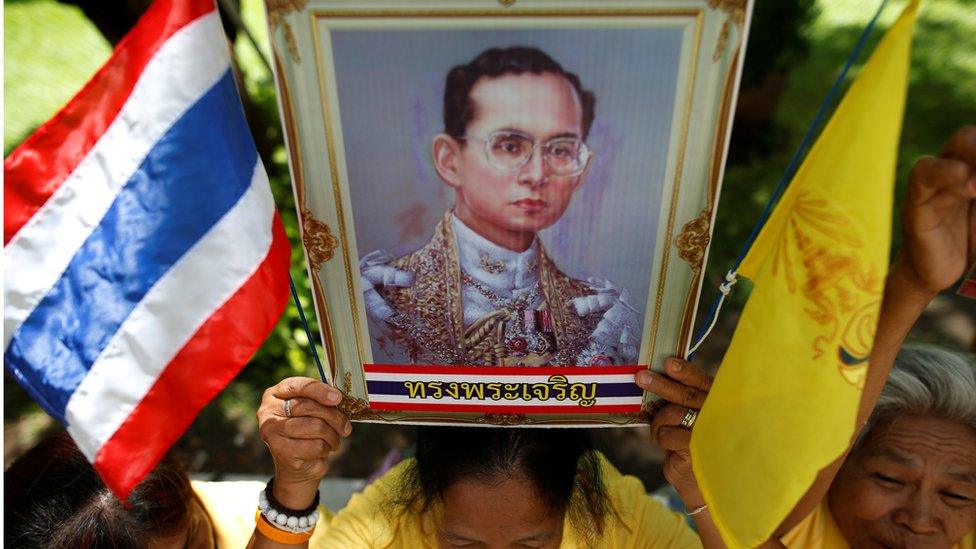Thailand warns Facebook to block content critical of the monarchy
- Published

Authorities in Thailand have warned Facebook to take down content critical of the monarchy, or face legal action.
The social media giant has been given until next Tuesday to remove more than 130 items from pages viewable in Thailand.
Facebook says it does consider requests from governments to block material, and will comply if it breaks local laws.
Any comment critical of the monarchy can result in prosecution under Thailand's strict lese-majeste law.
Those convicted face long prison sentences.
Thailand's military government that seized power in Thailand in 2014 has made great efforts to suppress any criticism of the monarchy.
Thousands of websites have been blocked, and people caught sharing, or even liking Facebook posts deemed unflattering to the monarchy have been prosecuted.

The monarchy is accorded enormous respect in Thailand
The National Broadcasting and Telecommunications Commission told the BBC that Facebook had already co-operated in blocking some pages, but that more than 130 judged to be illegal remained visible in Thailand.
Last year, the country's deputy prime minister said Google agreed to co-operate with the removal of online content insulting Thailand's monarchy.
The US internet company said it was following its existing policies on content removal.
"When we are notified of content that is illegal through official processes, we will restrict it in the country where it's illegal after a thorough review," Google said at the time.
Up to 15 years in prison
Thailand's lese-majeste laws are intended to protect the most senior members of Thailand's royal family from insult or threat.
Article 112 of the country's criminal code says anyone who "defames, insults or threatens the king, the queen, the heir-apparent or the regent" will be punished with up to 15 years in prison.

Even a thumbs-up can prove troublesome in Thailand
Lese-majeste complaints can be filed by anyone against anyone, and they must always be formally investigated by the police.
Trials are usually conducted in secret, and with almost no chance of being acquitted defendants usually plead guilty in the hope of reducing the sentence.
More than 100 people have been charged with lese-majeste since the coup; seven were detained by the military last month, including a lawyer who is being charged on 10 counts of violating the law, carrying a punishment of up to 150 years in prison.
Some of the recent arrests have related to posts on social media sites.
A man faces 15 years in jail for posting images on Facebook in 2015 of then-King Bhumibol's favourite dog in a way that mocked the king, according to the prosecutor.
And a cleaning lady is being charged for posting the words "I see" in an exchange on Facebook between her and a political activist that police say had defamatory comments.
- Published13 April 2017

- Published7 December 2016

- Published6 October 2017

- Published22 October 2016
